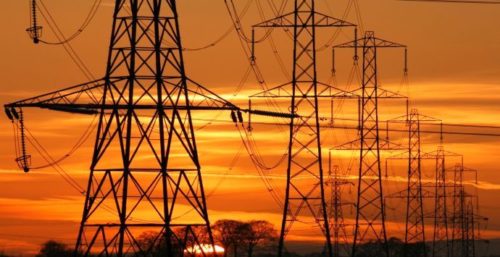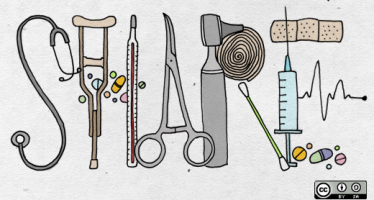Community-choice local energy programs keep expanding
 Community-choice energy programs – in which a local government or coalitions of local governments procure electricity and use the infrastructure of existing utilities to distribute it – are growing in popularity across California.
Community-choice energy programs – in which a local government or coalitions of local governments procure electricity and use the infrastructure of existing utilities to distribute it – are growing in popularity across California.
Proponents say government control will lead to cheaper utility rates and faster adoption of renewable energy.
This month, more than 950,000 homes and businesses in Los Angeles and Ventura will shift to a community-choice program – the Clean Power Alliance. It will be the state’s 20th and largest community-choice provider, which will then provide power to nearly 3.6 million customers in the Golden State.
Those numbers could drastically grow in coming years. Both San Diego Mayor Kevin Faulconer and Dianne Jacob, chair of the San Diego County Board of Supervisors, have endorsed community-choice programs. Many other local governments are watching how the programs work in places that have already adopted them.
SDG&E says it welcomes infrastructure-only role
To the surprise of many industry watchers, one of the state’s three giant investor-owned utilities isn’t fighting this development.
After San Diego began taking steps toward a community-choice program last year, San Diego Gas & Electric made clear its interest in getting out of energy procurement. Earlier this month, Kendall Helm, SDG&E’s vice president of energy supply, told the Los Angeles Times that the decision was straightforward.
“We don’t think we should be signing big, long-term contracts for customers that have made a conscious choice to be served by a different” provider, Helm said. “We think our primary role and our primary value is in the safe and reliable delivery of that power.”
Pacific Gas & Electric and Southern California Edison continue to defend the status quo and to work with the California Public Utilities Commission and SDG&E on “exit fees” assessed to departing customers to make sure they help pay for maintaining energy infrastructure. But PG&E, now in bankruptcy and facing possible dissolution by the CPUC because of repeated scandals, has dropped its once-aggressive opposition to the very idea of community-choice energy, including sponsoring a failed state ballot measure on the issue in 2010.
CPUC president fears programs could fail, cause havoc
But California’s most prominent regulator worries that adoption of community-choice’s programs could have huge unintended consequences.
CPUC President Michael Picker told the San Francisco Chronicle last spring that he worries about things going haywire.
“You’re going to have some failures,” Picker said. “Electric markets can be brutal. So what happens to the customers, midyear, if the company or the program goes away? Where do those customers go?”
In a May op-ed in the Sacramento Bee, Picker urged local officials pursuing community-choice to act with care.
“The last time California deregulated electricity, it did so with a plan, however flawed. Now, electricity is being deregulated de facto, through dozens of decisions and legislative actions, without a clear or coordinated plan,” he wrote. “If California policymakers are not careful, we could drift slowly back into another predicament like the energy crisis of 2001.”
Picker warns that managing California’s power grid requires expertise and will become increasingly difficult as new clean-energy mandates kick in and as new technologies come to the fore.
But these warnings so far don’t seem to resonate with the statewide business community, which so far has not taken a strong, consistent stand on community-choice.
Some local groups have, however. The San Diego Regional Chamber of Commerce, for example, questions the assumptions that community-choice will lead to cheaper utility rates and increased use of clean energy.
Chris Reed
Chris Reed is a regular contributor to Cal Watchdog. Reed is an editorial writer for U-T San Diego. Before joining the U-T in July 2005, he was the opinion-page columns editor and wrote the featured weekly Unspin column for The Orange County Register. Reed was on the national board of the Association of Opinion Page Editors from 2003-2005. From 2000 to 2005, Reed made more than 100 appearances as a featured news analyst on Los Angeles-area National Public Radio affiliate KPCC-FM. From 1990 to 1998, Reed was an editor, metro columnist and film critic at the Inland Valley Daily Bulletin in Ontario. Reed has a political science degree from the University of Hawaii (Hilo campus), where he edited the student newspaper, the Vulcan News, his senior year. He is on Twitter: @chrisreed99.
Related Articles
Gov. Brown goes back to school
Oct. 29, 2012 Katy Grimes: Some say that Gov. Jerry Brown is getting schooled on Proposition 30. Others say he’s
Ex-CA cop: U.S. law enforcement blew terror response
April 20, 2013 By Chris Reed A former official with a state law-enforcement agency sent me a contrarian take on
House votes to repeal medical device tax
In a bipartisan vote of 280-140, the U.S. House of Representatives passed H.R. 160, dubbed the “Protect Medical Innovation Act,”



